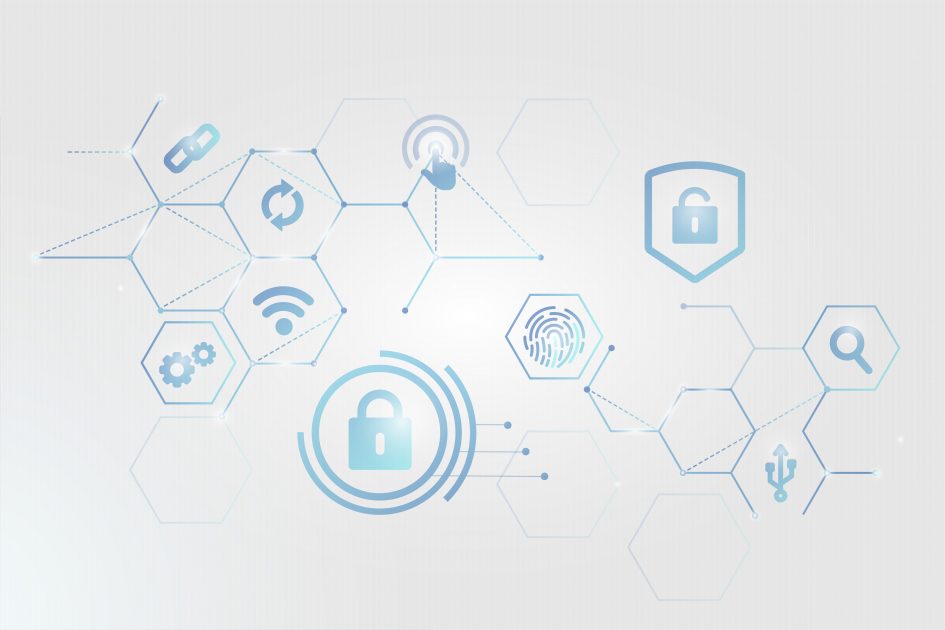Why Data Security matters for Virtual & Hybrid Events?
Data security has become more prevalent as more hybrid and virtual events take place. According to Forbes, since the COVID-19 pandemic, there has been a 1000% increase in virtual and hybrid events. Virtual and hybrid events are at greater risk of cybersecurity threats and incidents. As these events operate on sensitive user data, they become more vulnerable. Remember, a single vulnerability is all that a cyber-attack awaits. Event planners bear the responsibility to safeguard the private data entrusted to them by their attendees and companies. A surge in virtual or hybrid events imposes greater challenges in terms of data security.
We would be discussing more about the importance of data security for virtual and hybrid events.
Security Threats for Virtual & Hybrid Events
Today, malicious entities and cybercriminals have deployed modern ways of exploiting virtual and hybrid events. After the onset of the COVID-19 pandemic, the risks and cyber incidents have increased as well. According to a report by the FBI, cyber-crime incidents and reports have quadrupled after the pandemic. It also reported a 300% more increase in reported data attacks. That is why; event planners are worried about data security more than ever. Indeed, virtual or hybrid events impose different challenges when it comes to data security.
Cybercriminals are ready to take advantage round the clock. These virtual and hybrid events involve the exchange of very sensitive data. This data often includes payment and account credentials, intellectual properties, trade secrets, protocol and personal identifiable information. All this kind of data is very vulnerable and valuable. Hackers would not spare any opportunity to steal this data.
Events planners use many event online platforms for holding their events and for data management of their events. Although these platforms are equipped with data security mechanisms, there is still a chance of a data security breach. There are chances of malware attacks. Phishing is the most common data attacks threats when it comes to virtual and hybrid events. Other kinds of cyber threats include Denial of Services attacks and Zero-Day exploit.
Cyber Security Practices to Facilitate
Events planners need to be more aware of the potential data threats. After all, it is their event and its reputation at risk. Although cybercriminals are quick to attack, that does not mean you cannot mitigate the risks. We would be discussing certain practices to safeguard the data for virtual and hybrid events. These practices are proven remedial for securing any cyberspace. Over the years, experts have validated the following four practices to aid in data security matters. Let us enrich ourselves with these practices.
Regulating the Access to Event
One of the very first cardinal rules for hybrid and virtual event is to exactly know “who is participating”. The event planners need to be clear about who is attending, who they are, and how many are attending. Because your attendees have more access to the event’s data primarily. In this way, you can prevent unwanted people from attending and out of place attendees as well.
For regulation, you must have a strong registration process. This is the first gate check for hybrid and virtual events. If we talk about the platforms, Zoom has been very much prevalent. The platform reported this major issue of unwanted attendees. A phenomenon is known as “Zoom Bombing”. In the past year, Zoom reported random and unwarranted attendees in their events. These random users would hijack sessions and disrupt the sessions. The major reason for this was that the Zoom events did not have proper access or checkpoint. These check or access points can validate the attendee. This regulation of access can help to mitigate such risks.
How to Regulate Access?
Now, there are a couple of things event planners can do when it comes to regulating access. You can avail of electronic sign-in and sign-up services. There are many other registration platforms available in the market as well. In addition, you can introduce pre-registration screening and gather interest via email as well. All these things would allow you to limit the chances of event hijacking.
Another way out is to limit the event access link sharing to once. The event access link is very vulnerable. Do not create public or all-access events. Sharing event access links on social media, advertisement, and public channels increases the risks as well. It leads to unsolicited people accessing the data and malicious participation. In addition, you can lock the access of the event once it is commenced to block the unwarranted entrance. You must check all your attendees in this regard as well.
Keep all the Cyber-security Protocols in Check
The entities involved in the event have a crucial role to play for data safety. For this, the entities or stakeholders must keep the cybersecurity protocols in check. The stakeholders need to make sure that the software and systems are updated. Regular update checks can deal with safety vulnerabilities. The use of a patch is very much prevalent in this regard. The patch is software, which improves system operation, keeps a check on updates and deals with malware.

Another thing, which is very much prevalent, is network security. The stakeholders must have a credible and well-managed network security mechanism. Network security deals with the detection, protection and reaction of the system. This secures and assess access from external networks. This is particularly important for virtual events. In virtual events, attendees and speakers are connecting with their networks from various locations.
Making a dedicated Data-Security Team
Creating a dedicated and set team for data security in events brings in many benefits. Although, many events have a tech team that looks into security matters. However, the tech team has a lot to deal with. In addition, having people with the right cyber-security expertise can prevent you from malicious data security threats. Events do need special administrators to look after access control to block unauthorized attendees. They also deal with unsecured device connections and wireless networks. The cybersecurity team can also present a multitude of secure network solutions.
End-to-End Encryption is Crucial
When it comes to event planning, caring for the safety of attendees and stakeholders is crucial. It is the responsibility of the event planners to care for data safety needs. Everyone involved must be secured. In virtual or hybrid events, attendees are connecting with multiple networks from different locations. Most of them might not have adequate network security. This can cause harm to the event planners and other people attending the event. Many of the people connect via unsafe wireless hotspots, which are very much vulnerable to threats. In addition, many could have weak network credentials. All these factors come into play and create unsecured cyberspace for an event.
Now, in order to secure cyberspace, event planners must choose platforms with End-to-End Encryption for data transmission. Through this, the data becomes unreadable along with the transmission channel until it reaches its destination. The power of End-to-End Encryption is much boosted when it is used with Multi-factor Verification. This provides benefit and security to deal with Phishing scams. Through MFA, the attendee is required to verify their login credentials with a secondary authentication mechanism. In this way, access is strictly regulated for the event. It can keep away the unwarranted attendees, hackers and crashers. In addition, it can also prevent disruption caused by a distributed denial of service (DDoS) attacks.
Cloud-Based Event Management Systems for Data Security
This is something, which is making waves in the arena of modern event management and data security. There are so many potential points of failure in network infrastructure. This is one of the biggest data-protection challenges faced by events today. Each software, account, protocol, device and network connection is a potential entry point to your data system and event. All these things bring along their security vulnerabilities as well. This increases the chance of data exploitation by hackers.
In this case, a cloud-based event management system can help a lot. This provides an integrated platform and approach towards a secure event. It decreases the data stored on devices. Which, in turn, leads to less data security threats. It provides centralized a pool of data for event planners. Such platforms mitigate the security risks and hassle as well.
Conclusion
Data security in events is not a common thing. Remember, it puts your reputation, revenue and event at large risks. Make sure you allocate a reasonable budget for it. Cybersecurity and satisfaction of your attendees should be your top priority. This is all that matters. Give the best to it. In addition, make sure that the platforms and practices run in compliance with global or local regulations. Have a dedicated team for compliance and cyber-security.
Do you want to know how we can help you regardless if your event is physical, virtual or hybrid? Book a demo today.





